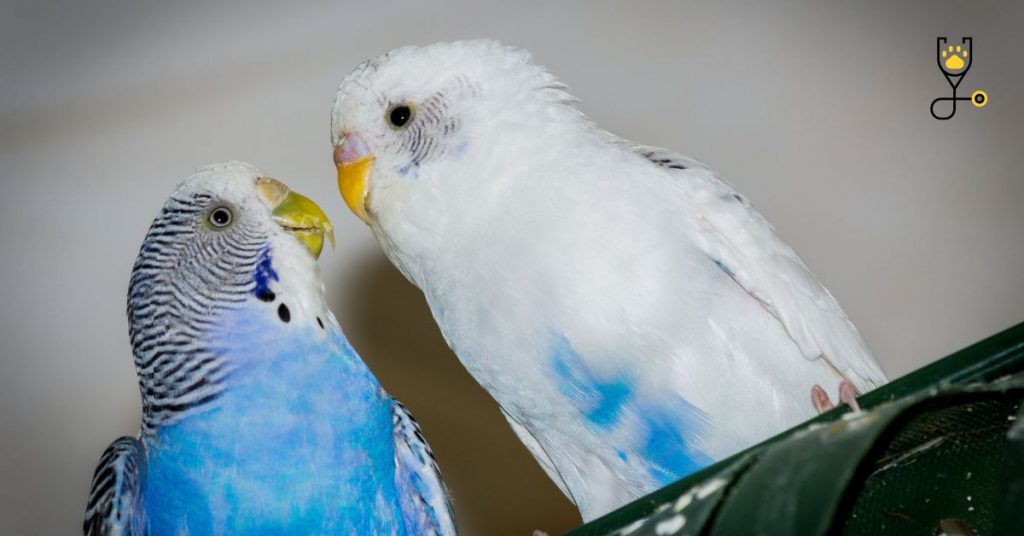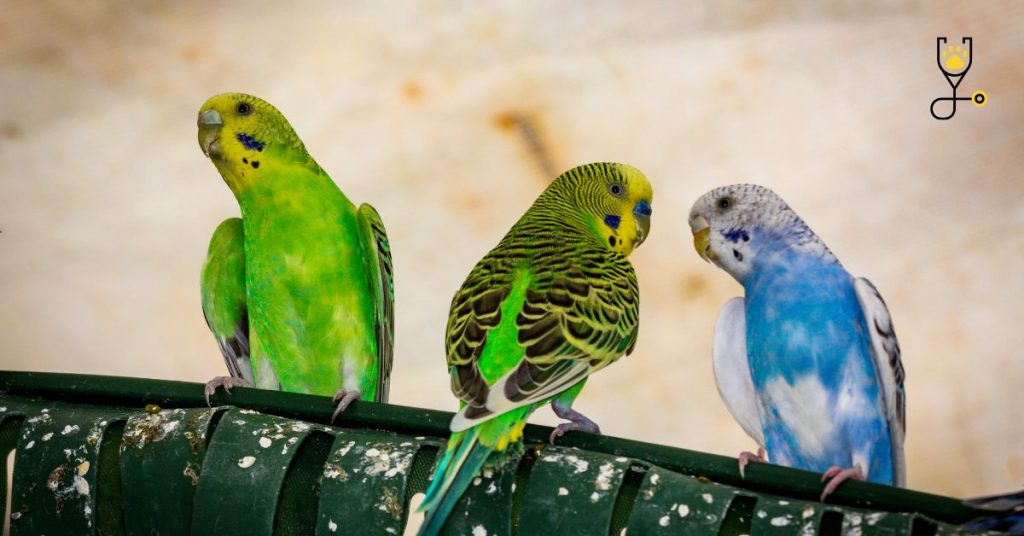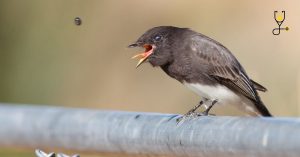Do you have a pet bird that is feeling under the weather? Just as we humans are susceptible to getting sick, so too are our feathered friends. While there’s cause for concern when they show signs of being ill, it’s important not to jump to conclusions and panic right away. In this blog post, we aim to provide an overview of common sicknesses found in pet birds so that you can make more informed decisions about your own beloved companion bird’s health care needs. Read on as we delve into details about illnesses such as respiratory infections, fungal infections, and more!
15 General Reasons for sickness in Pet Birds
1. Respiratory Infections
Respiratory infections such as air vasculitis, tracheal infections, and fungal infections are all common ailments in pet birds. These illnesses can cause difficulty breathing, sneezing, wheezing, coughing or nasal discharge. Respiratory infections may be caused by bacteria, viruses or fungi and can spread quickly among birds kept in close quarters. It’s important to seek veterinary attention if your bird is showing any of these signs.
2. Fungal Infections
Fungal infections such as Aspergillosis can cause respiratory distress in birds as well as lethargy, weight loss, and decreased appetite. Fungi that normally live on surfaces can become airborne, causing infection in birds. It’s important to keep your bird’s environment clean and free of excess moisture to reduce the risk of fungal infections.
3. Vitamin A Deficiency
Vitamin A deficiency can cause respiratory issues such as sneezing, wheezing and sinus congestion in pet birds. In addition, it can lead to eye problems like conjunctivitis or corneal ulcers. To prevent vitamin A deficiency, make sure that you are providing a balanced diet rich in fruits and vegetables for your bird.
Learn more: All About Vitamin-Rich Foods for Pet Birds
4. Parasites
Parasitic infections can be caused by internal parasites such as Giardia and Coccidia, or by external parasites such as mites and ticks. These parasites can cause digestive upset, anemia, weight loss, and respiratory issues. It’s important to keep your pet bird’s environment clean and free of potential parasites.
5. Bacterial Infections
Bacterial infections such as salmonella and E. coli can affect pet birds, causing diarrhea, vomiting, and lethargy. Birds that come into contact with contaminated water or food sources may be more likely to contract a bacterial infection. Good hygiene practices are essential for keeping your bird healthy and reducing the risk of sickness from bacterial infections.
6. Stress-Related Illnesses
Just like humans, birds can suffer from illnesses related to stress or anxiety. These can include feather picking or plucking, self-mutilation, depression or even aggression. It’s important to create a stress-free environment for your pet bird to help prevent these types of illnesses from occurring.

7. Egg Bound
Birds that are egg bound may show signs of weakness, loss of appetite and depression. This occurs when eggs become stuck in the oviduct and cannot be laid naturally. If you notice any of these signs in your pet bird, seek immediate veterinary attention as this can be a life-threatening condition.
8. Malnutrition
Malnutrition is one of the most common causes of illness in pet birds and can lead to stunted growth, feather problems, and weakened immune systems. Providing a balanced diet with fresh fruits and vegetables is essential for keeping your bird healthy and avoiding the risk of malnutrition.
Also read: Reasons Why An All-Seed Diet Is Damaging To Your Bird’s Health
9. Avian Influenza
Avian influenza is a highly contagious viral infection that can affect pet birds, as well as wild birds in certain areas of the world. Symptoms include sneezing, coughing, nasal discharge and lethargy. It’s important to keep your bird from contact with other birds that may be infected. Vaccines are also available to help protect against avian influenza in some cases.
10. Impacted Crops
Impacted crops can occur when food becomes stuck in the crop of a bird, leading to difficulty eating or even regurgitation. This can happen if a bird consumes a large amount of food at once or eats something that is not digestible. If you suspect impacted crop in your pet bird, seek veterinary attention immediately.

11. Liver Disease
Liver disease can occur in birds due to a variety of causes including poor nutrition and toxins. Symptoms may include weight loss, diarrhea, vomiting, jaundice or even seizures. It’s important to seek veterinary attention if you notice any of these signs in your bird as early diagnosis and treatment are essential for avoiding serious complications.
12. Kidney Disease
Kidney disease is a common problem in birds and can be caused by infections, parasites, toxins or even genetics. Symptoms such as lethargy, weakness, weight loss, and increased thirst may indicate kidney problems in pet birds. Early diagnosis and treatment are essential for avoiding serious complications.

Prevention
- 1 Routine Check-upsRegular check-ups with your vet to monitor the health of your pet bird is essential for catching any potential problems early and avoiding serious illnesses.
- Proper nutrition balanced, nutritious diet is essential for keeping your pet bird healthy and strong. Offer a variety of fresh fruits and vegetables to ensure your bird gets the vitamins and minerals it needs.
- Clean EnvironmentMaintaining a clean environment for your pet bird is essential for avoiding illnesses and reducing the risk of infection. Clean water, food dishes and cages regularly to reduce the spread of bacteria and viruses.
Conclusion
Caring for a pet bird can be an incredibly rewarding experience. However, there are many common illnesses that can affect birds if they are not cared for properly. By understanding the signs and symptoms of different illnesses, as well as taking preventative measures such as providing a balanced diet and clean environment, you can help keep your pet bird healthy and happy. With regular vet check-ups, proper nutrition and a clean environment, you can ensure that your pet bird stays safe from illness and enjoys a long, healthy life.
FAQs
Q: What are the common illnesses in pet birds?
A: Common illnesses in pet birds include respiratory infections, egg binding, malnutrition, avian influenza, impacted crops, liver disease and kidney disease.
Q: How do I prevent my pet bird from getting sick?
A: The best way to prevent illness in your pet bird is to provide a balanced diet and clean environment, as well as routine check-ups with your vet. Additionally, avoiding contact with wild or ill birds can help reduce the risk of infection.
Q: What should I do if I suspect my bird is sick?
A: If you suspect that your bird is ill, it’s important to seek immediate veterinary attention. Early diagnosis and treatment are essential for avoiding serious complications. Additionally, make sure to follow your vet’s instructions closely and provide the right care for your pet bird.
Q: What are the symptoms of avian influenza?
A: The symptoms of avian influenza can include sneezing, coughing, nasal discharge, and lethargy. If you suspect your bird has been exposed to this virus seek veterinary attention immediately. Vaccines may also help protect against avian influenza in some cases.
Q: What is impacted crop?
A: Impacted crop is a condition in which food becomes stuck in the esophagus or crop. It can occur if a bird swallows too much at once, or eats something that is not digestible. If you suspect your pet bird has an impacted crop, seek veterinary attention immediately.








